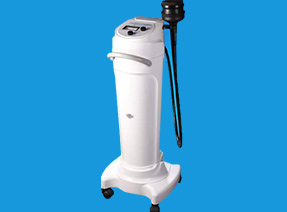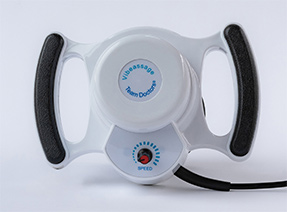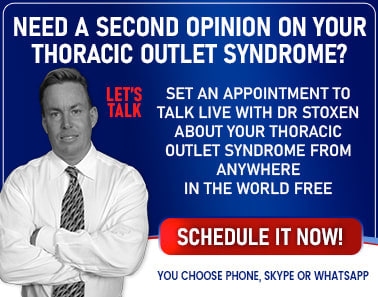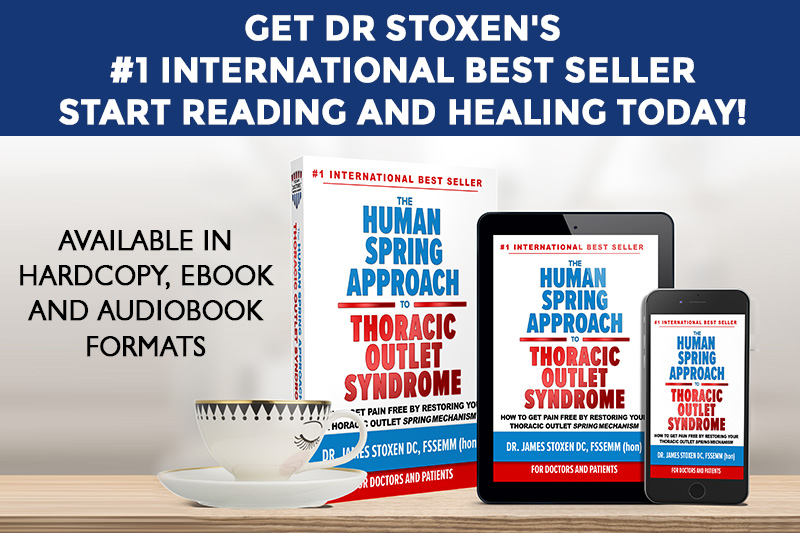THE HUMAN SPRING APPROACH TO
THORACIC OUTLET SYNDROME
by Dr James Stoxen DC., FSSEMM (hon) FWSSEM
GLOSSARY
I
ICD 10 for thoracic outlet syndrome – G54
imaging studies – imaging studies are tests performed with a variety of techniques that produce pictures of the inside of a patient’s body.
impact resistance – the ability of a material to withstand a high force or shock applied to it over a short period of time. A high force over a short time has a greater effect than a weaker force over a longer period of time.
impingement – the unwanted compression of soft tissue between two or more harder, unyielding structures.
incision – a surgical cut made in skin or flesh.
incomplete resection – when the entire first rib is not completely removed during surgery for thoracic outlet syndrome.
infraclavicular surgical approach – a surgery to decompress the thoracic outlet starts with an incision below the collarbone instead of above the collarbone like the supraclavicular approach.
inpatient physical therapy – physical therapy rendered in a hospital setting.
inresection – cut out.
integrated – means combining or coordinating separate spring elements into a harmonious, interrelated whole.
integrated spring-mass model – describe how the body is engineered where the body is an integrated spring and the head is the mass.
integrated torsion spring – many torsion springs that are integrated into one integrated torsion spring.
intercostal muscles – are muscle groups that are situated in between the ribs that create and move the chest wall. The muscles are broken down into three layers, and are primarily used to assist with the breathing process. … They originate from ribs two through 12, with insertion from ribs one to 11.
intercostal neuralgia (intercostal neuritis) – is a painful disorder of the nerves running between the ribs.
intercostal neuritis (intercostal neuralgia) – is a painful disorder of the nerves running between the ribs.
intercostobrachial nerve – a branch of the second intercostal nerve that crosses the axilla and supplies the skin of the inner and back part of the upper half of the arm.
Interferential current (IFC)—an electrical therapy used primarily for pain relief.
interleukin-6 (IL-6) – an interleukin that acts as both a pro-inflammatory cytokine and an anti-inflammatory myokine.
interscalene triangle – the triangular or gap bounded by the scalenus anterior and scalenus medius muscles and the first rib to which the muscles attach; the hiatus provides passage for the subclavian artery and the roots of the brachial plexus.
interstitial space – the fluid filled areas that surround the cells of a given tissue; also known as tissue space.
intertwined – twisted or twined together.
intervention – action taken to improve a situation, especially a medical disorder.
intra-fusil fibers – skeletal muscle fibers that serve as specialized sensory organs (proprioceptors) that detect the amount and rate of change in length of a muscle.
intractable pain (Intractable Pain Disease, IP) – is a severe, constant pain that is not curable by any known means and which causes a bed or housebound state and early death if not adequately treated, usually with opioids and/or interventional procedures.
intrinsic stenosis – an abnormal narrowing in a blood vessel or other tubular organ or structure.
inverted pendulum model – a model of human movement that describes the lead leg landing straight and the back leg pushing the mass over the lead leg in a pole vault-like manner.
involuntary reflexes – a reflex is an involuntary reaction with nearly instantaneous movement in response to a stimulus.
ischemic compression – a therapy technique where blockage of blood in an area of the body is deliberately made, so that a resurgence of local blood flow will occur upon release.
isometric contraction – muscle contraction without appreciable shortening or change in distance between the origin and insertion.

Meet Dr James Stoxen DC., FSSEMM (hon)
President, Team Doctors® Masters Academy
www.drstoxen.com
Dr Stoxen’s Curriculum Vitae
Stay connected to our thoracic outlet syndrome social media sites
1.1k
Members

READ THESE CHAPTERS OF DR STOXENS BOOK FREE HERE!
ARTICLE CATEGORIES
- Testimonials (13)
- Success Stories (13)
- Failed TOS Surgery (1)
- Thoracic Outlet Syndrome (11)
- Compartment Syndrome – Forearm (5)
- Shoulder Replacement Surgery (1)
- Cervical Discectomy (1)
- Cervical Fusion Surgery (1)
- What is TOS? (3)
- Thoracic Outlet Anatomy (1)
- Thoracic Outlet Engineering (1)
- Causes Of TOS (6)
- The TOS Examination (1)
- Diagnostic Tests for TOS (1)
- What Mimics TOS? (1)
- Paget-Schroetter Syndrome (2)
- TOS Surgery (2)
- Posture Tips (1)
- Self Treatment (1)
- What doesn’t work and why? (1)
- What works and why? (1)
- Stretches for TOS (1)
- Exercises for TOS (1)
- Surgery for TOS (1)
- Case Studies (2)
- Chapter Reviews (10)
- Uncategorized (16)
VIDEO TUTORIALS
Subscribe to our newsletter
Team Doctors® Master’s Academy
Professional Development Courses
Launching January 1, 2022!
Team Doctors® Master’s Academy
Patient Self-Care Workshops
Launching January 1, 2022!


















